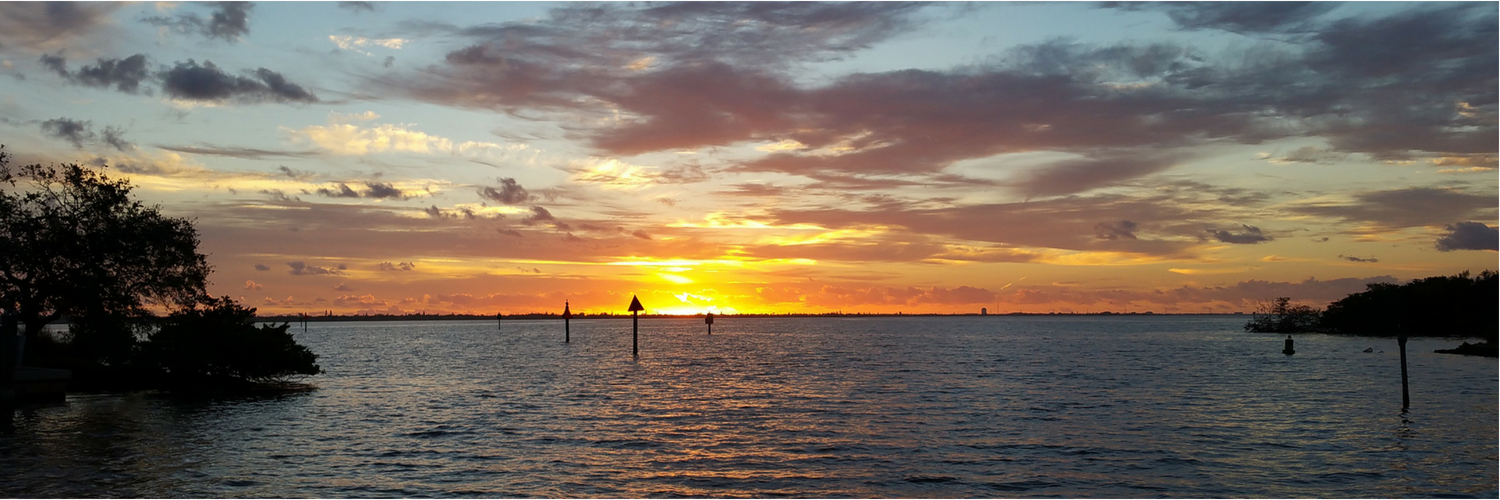Summer Field Research Courses
Florida Tech’s field-research courses offer an immersive experience for students interested in learning research techniques in exotic locations across the world. Students take a deep dive into diverse environments that include the rocky shorelines of the Galapagos, the coral reefs of Puerto Rico, wild Amazonian rivers, and the whale-friendly coasts of the Pacific Northwest. The courses truly offer the experience of a lifetime!
None of these courses is a vacation. They are life-changing experience that inspire a passion for conservation, an understanding of research under difficult circumstances, and an appreciation of diverse cultures. The quality of the trips is consistent, with well-thought-out daily objectives and student-led projects. Students have the opportunity to focus on specific research objectives over the duration of each trip.
Our field courses blend traditional classroom lectures and coursework with hands-on experiences to teach the tools of the trade. Students get a crash-course on what life is really like for a research scientist, and they learn the logistics of traveling and working with limited resources.
Destinations
Ecuador or Peru

Neotropical Archeoecology
MAR 4421/5421
Professor Mark Bush
Dr. Mark Bush leads a team of up to 16 students on a 14-day voyage of discovery in Ecuador or Peru. During the trip students explore the cloud forest and the lowlands in Yasuni Rainforest Reserve (Ecuador) or Manú National Park (Peru), which boast the highest biodiversity on the planet. A largely boat-based trip once we are in the lowlands, we explore Amazonian rivers while observing monkeys and birds, and experiencing rainforest ecology. Observing pink river dolphin, giant river otter, anaconda, and black caiman, and fishing for piranha are potential highlights of the trip. Working with indigenous guides, students learn about medicinal uses of trees and take part in ongoing research.
To learn more, contact:
Mark Bush, Ph.D.
mbush@fit.edu
Puerto Rico
 Coral Reef Ecology
Coral Reef Ecology
MAR 2955 / MAR 5022
Professor Ralph Turingan
Each year during the summer term, Dr. Ralph Turingan takes up to 20 students on a SCUBA diving and snorkeling expedition to the tropical marine ecosystems of Puerto Rico. This field course is conducted in collaboration with Isla Mar Research Expeditions, a Puerto Rico-based educational and research company founded and operated by Florida Tech marine-biology alumni. Students spend many hours snorkeling and diving on coral reefs and associated habitats, including mangroves and seagrass-beds, around Puerto Rico. During the summer months the surf is calm on the island, allowing students to easily navigate the Tres Palmas coral reef system from shore. They learn how to design and conduct field research, including censusing fish using visual techniques, characterizing habitat types using transects, and mastering the skills of data analysis and interpretation, as well as practicing scientific writing and other forms of presenting science to the general public. Late-afternoon and evening lectures and discussions connect the day’s field experiences with contemporary marine-biology concepts and concerns. In this field course students gain a deep understanding of Puerto Rico’s tropical ecosystems, especially the marine environment.
Students are also able to enjoy the culture of Puerto Rico with trips to historic Old San Juan, traditional coffee plantations, caves and rain forests. They have the opportunity to connect with local citizens about the culture and ecology of the Commonwealth of Puerto Rico.
Check out this video of a past trip.
To learn more, contact:
Ralph Turingan, Ph.D.
turingan@fit.edu
Galapagos
 Field Biology and Evolution of the Galapagos Islands
Field Biology and Evolution of the Galapagos Islands
MAR 4904/5904
Professor Mark Bush
Student go off the beaten trail in the Galapagos with Dr. Mark Bush. Field work includes a variety of landscapes, both aquatic and terrestrial, from humid highlands to arid deserts. Local guides help spot wildlife and lead us to the best spots for snorkeling the rocky shores or hiking a volcano. Students learn survey techniques for use above and below the tide-line. Paper discussions each evening put what students have seen that day into a scientific context.
During the course, students are able to visit six islands, three that are inhabited and three that are uninhabited. Animals observed during the trip include sea lions, blue-footed boobies, marine iguanas, giant tortoises, and sleeping sharks.
To learn more, contact:
Mark Bush, Ph.D.
mbush@fit.edu
Pacific Northwest
 Ecosystem Studies of the Pacific Northwest and Salish Sea
Ecosystem Studies of the Pacific Northwest and Salish Sea
MAR 3621 / MAR 5621
Associate Professor Spencer Fire
Students interested in marine mammal biology will spend 7–10 days with Dr. Spencer Fire traveling from the Cascade Mountains to the urban Seattle coastline and then to the remote San Juan Islands to observe and study marine mammals and the habitats that have shaped them. During this intensive field course, they will learn the methods, equipment and concepts that wildlife field biologists use as a daily part of their job. Students will participate in an existing research program, conducting both boat-based and land-based surveys of harbor seals, sea lions, killer whales and baleen whales. By the end of the course, they will be trained in digital photography, boat handling, behavioral/spatial data-collection, and other practical skills required for a career in wildlife biology. Students will develop their own research projects and learn how raw data are translated into results relevant to formulating marine-mammal conservation policy.
To learn more, contact:
Spencer Fire, Ph.D.
sfire@fit.edu


 Give to Florida Tech
Give to Florida Tech 